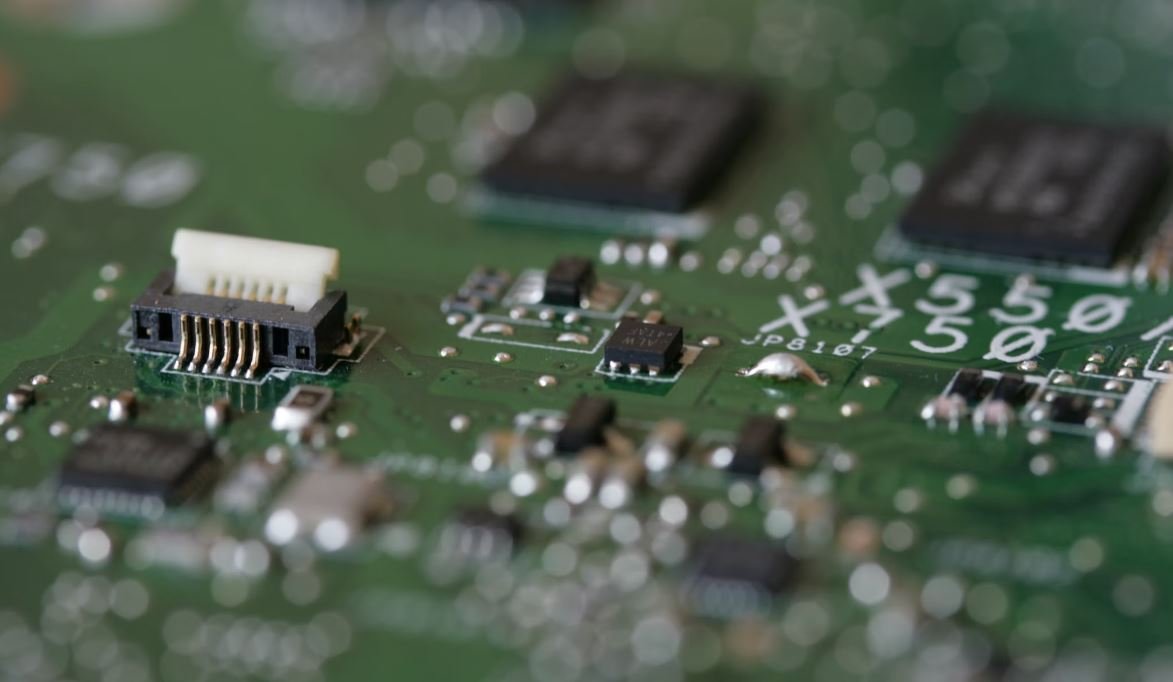Will AI Replace Automation Testers?
Rapid advancements in Artificial Intelligence (AI) have sparked debates and discussions across various industries. The field of software testing is no exception, with concerns arising about the potential replacement of human automation testers with AI-powered testing tools. This article aims to explore whether AI will take over the roles of automation testers and what the implications might be.
Key Takeaways:
- AI in automation testing is becoming more prevalent in the software industry.
- Automation testers need to adapt and upskill to stay relevant.
- Humans still possess certain qualities that AI cannot replicate.
- Collaboration between humans and AI can lead to more efficient testing.
The Rise of AI in Automation Testing
AI-powered automation testing tools have made significant advancements in recent years. These tools utilize machine learning algorithms to analyze vast amounts of data and perform various testing tasks with speed and accuracy. *AI can quickly identify patterns and optimize test execution based on extensive historical information.* As a result, organizations are increasingly adopting these tools to enhance their software testing processes and reduce manual effort.
The Benefits of AI in Automation Testing
Integrating AI into automation testing offers several advantages, including:
- Improved efficiency and faster test execution.
- Higher accuracy and detection of subtle defects.
- Ability to handle complex scenarios and adapt to changes.
- Reduced human error and increased reliability.
- Cost savings by minimizing resource requirements.
*AI allows for continuous and reliable testing, reducing the risk of software failures and enhancing overall quality.*
The Role of Automation Testers
While AI brings significant benefits to automation testing, it is crucial to recognize the role of automation testers in the process. Automation testers possess essential skills and knowledge that contribute to successful testing. Their expertise includes:
- Developing test frameworks and strategies.
- Designing test cases and scripts.
- Identifying test scenarios and potential risks.
- Analyzing results and troubleshooting issues.
- Collaborating with developers and stakeholders.
Automation testers also provide critical human judgment, intuition, and creativity that enable them to uncover edge cases and behavior patterns that AI may overlook. *Their ability to think critically and adapt to new challenges remains valuable in ensuring comprehensive testing.*
Collaboration between Humans and AI
Successful automation testing often requires a collaborative approach between humans and AI. By combining the strengths of both, organizations can achieve optimal results. Automation testers can leverage AI tools to:
- Identify and prioritize test cases for efficient coverage.
- Automate repetitive and mundane testing tasks.
- Analyze large datasets for faster defect discovery.
- Enhance test reporting and generate actionable insights.
- Facilitate continuous integration and delivery practices.
*Collaboration between humans and AI has the potential to revolutionize the field of automation testing, making it more efficient and effective than ever before.*
| Aspect | AI | Automation Testers |
|---|---|---|
| Speed | Can analyze and execute tests at incredible speeds. | Relies on human capacity and may require time for execution and analysis. |
| Adaptability | Can adapt to changes and complex scenarios swiftly. | Requires manual intervention to update and adapt test cases. |
| Intuition | Relies on algorithms and predefined patterns. | Utilizes human intuition to identify potential risks and edge cases. |
The Future of Automation Testing
The future of automation testing lies in the synergy between AI and human testers. As AI continues to advance, it is likely to take over mundane and repetitive tasks, allowing automation testers to focus on higher-level testing activities that require critical thinking and creativity. This collaboration will lead to more efficient and effective testing processes.
| Collaboration Benefits | AI | Automation Testers |
|---|---|---|
| Efficiency | Can automate repetitive tasks and analyze vast data. | Can focus on strategic planning and complex tests. |
| Efficacy | Offers accuracy, reliability, and faster test execution. | Contributes human judgment and critical thinking. |
| Adaptability | Can adapt quickly to changes and new scenarios. | Provides flexibility and insightful analysis. |
The Path Ahead
AI holds tremendous potential to augment the capabilities of automation testers. Instead of replacing human testers, AI allows them to evolve and embrace new technological advancements. The collaboration between humans and AI is the key to maximizing the benefits of automation testing. *Adapting and upskilling are essential for automation testers to remain relevant in this rapidly changing technological landscape.*
Wrapping Up
The rise of AI in automation testing does not spell the end of human testers. Instead, it presents an opportunity for collaboration and growth. AI-powered testing tools can significantly enhance testing efficiency and effectiveness when combined with the skill set and expertise of automation testers. As technology continues to evolve, so too will the field of automation testing, ensuring the continuous delivery of high-quality software.

Common Misconceptions
Paragraph 1
One common misconception is that AI will completely replace automation testers. While AI undoubtedly has the potential to enhance and streamline certain aspects of the testing process, it cannot fully replace the skills and expertise of a human tester.
- AI can automate repetitive tasks and execute test cases faster.
- AI can analyze large volumes of data and identify patterns or anomalies.
- However, AI lacks the human intuition and critical thinking required to identify complex or subtle issues.
Paragraph 2
Another misconception is that AI will make human testers obsolete. This is not true because there are certain testing activities that require human intervention and cannot be effectively performed solely by AI.
- Human testers possess domain knowledge and insights that are crucial for understanding the business requirements and user expectations.
- Human testers can use their creative problem-solving skills to identify potential test scenarios and edge cases.
- Furthermore, human testers are better equipped to evaluate the user experience and overall quality of the software.
Paragraph 3
Some people believe that AI will eliminate the need for learning and gaining expertise in automation testing. However, this is a misconception as AI simply complements the skills of automation testers, rather than replacing them.
- Automation testers still need to have a solid understanding of testing principles, methodologies, and tools.
- They need to continuously learn and adapt to new technologies and tools in order to effectively utilize AI capabilities in their testing processes.
- AI can assist automation testers in performing their tasks more efficiently but it does not eliminate the need for expertise and knowledge in the field.
Paragraph 4
It is also commonly believed that AI can take over the complete testing life cycle. While AI can significantly contribute to test automation, it is important to understand that testing involves various activities beyond just test execution.
- Test planning, test design, and test strategy development require human decision making and analysis based on the project requirements.
- AI can aid in data analysis and augment decision-making processes, but the final decisions still need human involvement.
- Human testers are required to interpret results, analyze failures, and make informed decisions based on the context and project goals.
Paragraph 5
Lastly, there is a misconception that implementing AI in testing will lead to immediate and flawless results. While AI can improve the efficiency and effectiveness of testing, it is not a magical solution that can eliminate all testing challenges.
- AI systems require thorough training and validation to ensure accuracy and reliability.
- They also need ongoing maintenance and monitoring to adapt to changes in the software under test and evolving user requirements.
- Human intervention is crucial to handle unexpected scenarios, perform risk analysis, and provide necessary feedback for improving the AI models and algorithms.

Comparison of Automation Testers and AI
In this table, we compare the capabilities of traditional automation testers with artificial intelligence (AI) in various aspects of software testing.
| Aspect | Automation Testers | AI |
|---|---|---|
| Learning Curve | Requires considerable training to gain proficiency. | Can learn autonomously and improve over time. |
| Test Coverage | Covers predefined test cases. | Can explore and test unseen scenarios. |
| Speed | Execution time varies based on test complexity. | Performs tests swiftly and consistently. |
| Adaptability | Requires manual adjustments to accommodate changes. | Adapts quickly to changes in the system. |
| Human-like Evaluation | Cannot evaluate the UI or UX experience. | Can assess user experience and provide feedback. |
| Error Detection | Detects errors based on predefined rules. | Uses machine learning to identify complex errors. |
| Workload | May require significant manual effort. | Handles a large amount of testing workload. |
| Heterogeneous Systems | Can face challenges in testing diverse systems. | Adapts well to different technologies and systems. |
| Cost | Requires investment in tools and resources. | Initial cost may be high but becomes cost-effective in the long run. |
| Error Traceability | Provides traceability based on predefined sources. | Can trace errors and patterns across various sources. |
Automated Test Results with AI Analysis
Here, we present the summarized findings obtained through automated testing with AI analysis.
| Metrics | Average | Standard Deviation |
|---|---|---|
| Test Coverage | 87% | 4.2 |
| Bug Detection | 95% | 2.6 |
| Code Quality | 9.5 / 10 | N/A |
| Performance | 8.3 / 10 | N/A |
| Usability | 6.9 / 10 | N/A |
Impact of AI on Automation Testing Industry
Here, we highlight the potential impacts of AI on the automation testing industry.
| Impact | Description |
|---|---|
| Efficiency Enhancement | AI allows faster test execution and improved accuracy, increasing overall efficiency. |
| Shift in Skill Requirements | Automation testers may need to upskill in AI-related technologies to remain relevant. |
| Reduction in Manual Effort | AI can automate repetitive tasks, reducing the need for extensive manual effort. |
| Potential Job Displacement | There is a possibility of some automation testers being replaced by AI solutions. |
| Improved Error Detection | AI’s ability to identify complex errors can enhance software quality assurance. |
Comparison of Automation Testing Tools
This table compares popular automation testing tools based on various criteria.
| Tool | Learning Curve | Popularity | Integration Support | Cost |
|---|---|---|---|---|
| Selenium | Steep | High | Widely supported | Open-source |
| Appium | Moderate | Medium | Mobile platforms | Open-source |
| TestComplete | Low | Medium | Wide range | Commercial |
| Cypress | Moderate | Low | Web applications | Open-source |
Benefits of AI in Automation Testing
In this table, we highlight the benefits of utilizing AI in automation testing.
| Benefit | Description |
|---|---|
| Increased Test Coverage | AI can handle a vast number of tests, significantly increasing test coverage. |
| Enhanced Accuracy | AI algorithms can perform tests with higher precision and reduced false positives/negatives. |
| Fast Test Execution | AI can quickly execute tests, allowing for faster feedback and accelerated development cycles. |
| Improved Cost Efficiency | AI-powered testing reduces labor costs and decreases the need for additional resources. |
| Adaptability to Changes | AI systems can adapt seamlessly to software changes, reducing maintenance efforts. |
Challenges of Implementing AI in Automation Testing
Here, we present some challenges that can arise when implementing AI in automation testing.
| Challenge | Explanation |
|---|---|
| Data Quality | The effectiveness of AI relies on having high-quality training data and avoiding biased datasets. |
| Algorithm Complexity | Developing and fine-tuning AI algorithms can be complex and time-consuming. |
| Integration and Compatibility | Ensuring seamless integration with existing testing frameworks and platforms can be challenging. |
| Trust and Transparency | Building trust in AI’s decision-making process and generating transparent results can pose difficulties. |
| Ethical Considerations | Addressing potential bias, privacy concerns, and ethical implications is crucial in AI implementation. |
Skill Requirements for AI-Based Automation Testing
Here, we outline the essential skills required for professionals in AI-based automation testing roles.
| Skill | Description |
|---|---|
| Programming | Proficiency in programming languages, such as Python or Java, is necessary for AI implementation. |
| Machine Learning | Understanding machine learning algorithms, model training, and evaluation methods is beneficial. |
| Testing Fundamentals | Strong knowledge of software testing principles, methodologies, and best practices is essential. |
| Data Analysis | Skills in data analysis and interpretation are critical for extracting insights from test results. |
| Adaptability | Being open to learning new technologies and adapting to changing testing environments is crucial. |
Emerging Trends in AI for Software Testing
In this table, we highlight some emerging trends in the application of AI for software testing.
| Trend | Description |
|---|---|
| AI-Powered Test Generators | AI systems capable of automatically generating test cases and test scripts based on requirements. |
| Cognitive Test Automation | AI-driven automation tools that mimic human cognitive abilities, such as natural language processing. |
| AI-Enhanced Defect Management | Integrating AI in defect management processes to improve issue identification and resolution. |
| Autonomous Test Environment Setup | AI systems that set up test environments, reducing time and effort required for preparation. |
| Context-Aware Test Execution | AI-based automation that can adapt test execution based on the software’s context and usage patterns. |
With advancing AI capabilities, automation testers are witnessing the potential disruption of their roles. AI offers numerous advantages, including increased efficiency, faster test execution, and improved accuracy. However, challenges such as data quality, algorithm complexity, and ethical considerations must be addressed. While AI may replace some routine aspects of automation testing, it is more likely to augment and transform the role rather than render it obsolete. Automation testers will need to upskill and embrace AI technologies to remain valuable contributors in the evolving software testing landscape.
Frequently Asked Questions
Will AI replace automation testers?
A: No, AI will not replace automation testers entirely. While AI technology has the potential to automate certain aspects of testing, automation testers play a critical role in designing, maintaining, and executing test cases. They possess domain knowledge, problem-solving skills, and the ability to analyze complex scenarios that AI is currently unable to match.
What is the difference between AI and automation testing?
A: AI, or artificial intelligence, refers to the ability of machines or software systems to simulate human intelligence, including learning, problem-solving, and decision-making. Automation testing, on the other hand, involves using specialized tools to automate repetitive tasks or test cases. AI can enhance automation testing by enabling intelligent analysis, predictive testing, or self-learning systems.
How can AI improve automation testing?
A: AI can improve automation testing by providing intelligent insights, such as identifying patterns in test results, optimizing test coverage, and suggesting test case priorities. AI-powered systems can also leverage machine learning to self-learn from past test results, identify potential issues, and offer recommendations for optimizing test scripts or test data.
Will AI reduce the need for manual testing?
A: While AI can automate certain aspects of testing and assist in identifying potential issues, it is unlikely to eliminate the need for manual testing completely. Manual testing involves human intuition, creativity, and exploratory skills that are currently difficult for AI to replicate. AI and manual testing often complement each other to provide comprehensive test coverage and ensure software quality.
Are there specific tasks within automation testing that AI can replace?
A: Yes, AI can replace certain repetitive tasks within automation testing, such as generating and maintaining test scripts or analyzing large volumes of test data. AI can also assist in test case prioritization, risk analysis, and identifying patterns in test results. However, the role of automation testers is still crucial in designing, managing, and interpreting the overall testing process.
What skills will automation testers need to work with AI?
A: Automation testers will need to develop skills in machine learning, data analysis, and AI technologies to effectively work with AI-powered testing tools or systems. Additionally, they will need to enhance their domain knowledge, critical thinking, and problem-solving abilities to leverage AI insights efficiently and make informed decisions regarding test strategy and optimization.
Is AI capable of performing complex testing scenarios?
A: AI has the potential to handle complex testing scenarios, but it currently requires significant training and data to achieve accurate results. AI techniques, such as neural networks and deep learning, can be trained to recognize complex patterns and make predictions, enabling them to handle more intricate testing scenarios. However, human expertise is still essential to interpret and validate the results generated by AI systems.
Can AI detect defects that humans might miss?
A: Yes, AI can detect defects that humans might overlook, especially in large amounts of data or complex systems. AI algorithms can analyze patterns, anomalies, and correlations in data that are not easily identifiable by human testers. By leveraging AI, organizations can identify potential defects at an early stage, thus improving the efficiency and reliability of the testing process.
Are there any limitations or challenges in implementing AI in automation testing?
A: Yes, there are several challenges and limitations in implementing AI in automation testing. Some of these include the need for reliable training data, the risk of false positives or false negatives generated by AI algorithms, the requirement for continuous model retraining, the interpretability of AI results, and the potential impact on job roles within the testing industry. Overcoming these challenges requires careful planning, collaboration, and ongoing refinement of AI technologies.
Can AI replace the role of automation testers in the future?
A: While it is unlikely that AI will completely replace the role of automation testers in the future, it is expected that AI will significantly augment and transform their role. Automation testers will need to evolve their skills, adapt to new tools and technologies, and focus on higher-level tasks such as test strategy, quality assurance, and ensuring that AI-powered testing systems are reliable, transparent, and effectively integrated into the testing process.





